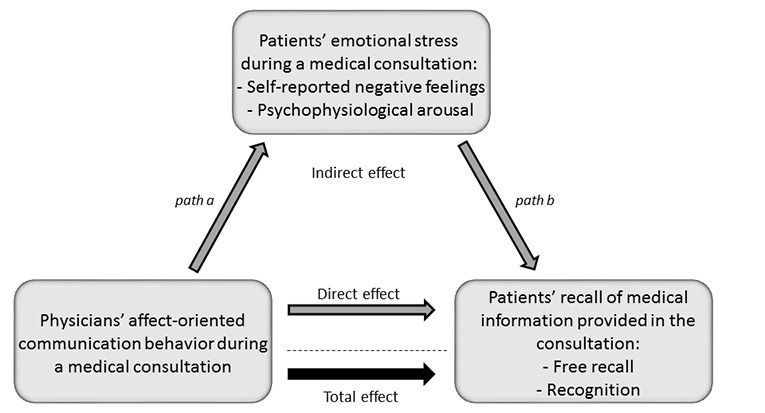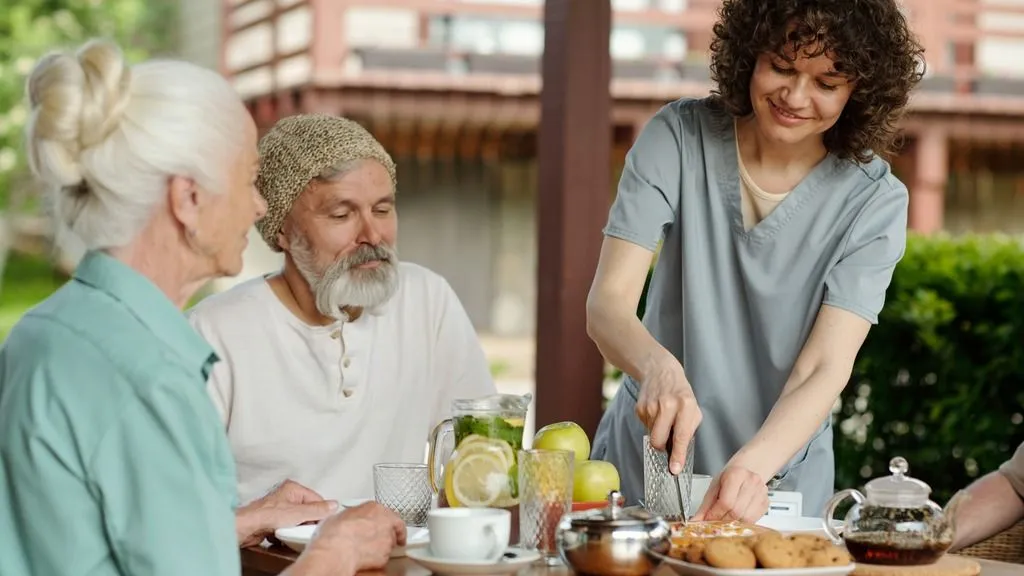How oncologists’ communication impacts patients’ information recall
In her study, Visser focuses on one of the possible mechanisms that may underlie limited information recall in patients: the relationship between emotional stress and memory performance.
Posted by
Published on
Thu 16 Nov. 2017
Topics
| Communication | Doctor-patient Interaction | Emotions | Information Recall | The Observer XT |

Blog post by Leonie (N.C.) Visser, researcher at the Department of Medical Psychology of the Academic Medical Center, University of Amsterdam, The Netherlands.
Background of the study
Patients’ recall of information provided by their physician
For patients, receiving medical information from their physician is important. Unfortunately, patients’ recall or ability to remember medical information provided to them by their physicians is generally poor. For example, approximately half of provided information is not remembered by cancer patients.
Uncovering the mechanisms that lead to limited recall of medical information may provide insights that help to improve recall and inform physicians about communication behaviors that can optimize information transfer to patients.
Reducing emotional stress as a potential mechanism
The PhD thesis of Leonie Visser focuses on one of the possible mechanisms that may underlie limited information recall in patients: the relationship between emotional stress and memory performance. Emotional stress is defined as the increase in self-reported negative feelings and/or physiological arousal caused by an emotional stimulus. Highly stressful situations are thought to induce poor memory formation.
Consequently, if physicians could reduce patients’ emotional stress during consultations, they might improve patients’ information recall. Such an effect might be accomplished by means of affect-oriented communication, or communication behaviors expressing care for and affective engagement with the patient.
The video-vignettes approach
The video-vignette design is especially suitable to systematically investigate the effects physician-communication on patient outcomes. A video vignette is a video recording of a situation in which actors mimic a scripted doctor-patient consultation [1]. In a video-vignette design, participants are called analogue patients. They can be either disease-naïve participants (individuals without a disease history) or former patients, and are instructed to watch the video vignette while imagining themselves in the video patients’ situation.
The analogue patients are usually randomly allocated to watch one (or more) of multiple versions of a video vignette. The medical content, the environment, and the interaction between characters are exactly identical across the video-vignette versions, except for specific communication elements of interest. These elements, in this case the physician’s response to the patient’s emotions, are manipulated to vary between video-vignette conditions. This allows for systematic testing of the effects of these specific communication behaviors on analogue patient outcomes.

Figure 1. A model of hypothesized relationships
Notes. Without accounting for emotional stress, affect-oriented communication was expected to positively impact information recall, which is called the total effect. When accounting for emotional stress as a potential mediator of this relation, the total effect can be broken down into two effects.
The first type of effect is the indirect effect, or in other words the mediation effect, whereby communication exerts its influence through analogue patients’ emotional stress. Specifically, affect-oriented communication was assumed to reduce emotional stress (path a), and these lower levels of emotional stress were assumed to result in higher levels of information recall (path b).
The second type of effect is the direct effect. It can be calculated by predicting information recall based on communication while controlling for emotional stress, thus taking into account a possible mediation effect.
Since emotional stress was expected to be a partial mediator of the impact of affect-oriented communication on information recall, we hypothesized that an indirect effect could be demonstrated, and -as a consequence- the direct effect was expected to be smaller than the total effect.
Aims
How oncologists’ communication impacts patients’ information recall and emotional stress
Testing this model presented in Figure 1 was the main objective of this thesis. As displayed in the model, we aimed to investigate the mediating role of emotional stress in the relationship between physicians’ communication and analogue patients’ information recall. Affect-oriented communication was assumed to reduce emotional stress levels, which in turn was expected to improve information recall (free recall and/or recognition of information provided by the physician in the consultation).
Using equipment from Biopac Systems, we planned to assess emotional stress by means of both self-reported and psychophysiological arousal measures to increase our ability to detect any relations and to examine replicability across measures. As this thesis was part of a research line addressing understanding and improving physician-patient information transfer within the field of oncology and emotions are an inherent part of most oncological consultation, we focused on the impact of communication by oncologists.
Conclusions
The research presented in this thesis provided evidence for the causal and positive influence of two specific forms of affect-oriented communication --trust-conveying and emotion-oriented communication -- on patients’ recall of medical information. These results underscore that oncologists’ affect-oriented communication can positively impact patients’ information recall.
Furthermore, our research suggested emotion-oriented speech as the best way to respond to patients’ emotions in comparison to emotion-oriented silence. Still, the findings presented in this thesis also indicate that it is important for oncologists to attune their communication to each individual patient, as differences in preferences and impact exist.
Implications
Showing evidence that affect-oriented communication strategies can improve not only patients’ emotional wellbeing, but also patients’ ability to recall highly relevant information may encourage oncologists (and physicians in general) to adopt such strategies. Additionally, providing educators with these obtained insights will help them to teach trainees the skills to deal with patients’ emotions and to scientifically validate the importance of these skills for patients’ information recall.
Contact details
Leonie (N.C.) Visser, Department of Medical Psychology, Academic Medical Center, University of Amsterdam, Amsterdam, The Netherlands ([email protected]).
Title of PhD thesis: “HOW ONCOLOGISTS’ COMMUNICATION IMPACTS PATIENTS’ INFORMATION RECALL AND EMOTIONAL STRESS. A VIDEO-VIGNETTES APPROACH.” – Public defense at the University of Amsterdam, 8th December 2017.
Related Posts

The use of humor during doctor-patient interactions

Mealtime challenges in dementia: insight in difficulties

